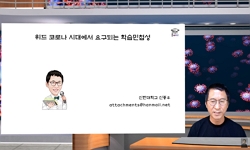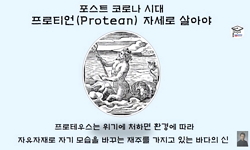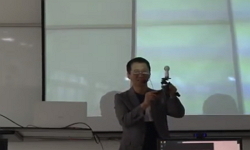본 연구에서는 기대일치모형, 기술수용모형, 과제기술적합모형, 합리적 행동이론에 근거하여, 원격수업에 대한 학습자의 지속적인 참여도를 탐색하였다. 본 연구에서는 기대일치모형, 기술...
http://chineseinput.net/에서 pinyin(병음)방식으로 중국어를 변환할 수 있습니다.
변환된 중국어를 복사하여 사용하시면 됩니다.
- 中文 을 입력하시려면 zhongwen을 입력하시고 space를누르시면됩니다.
- 北京 을 입력하시려면 beijing을 입력하시고 space를 누르시면 됩니다.

코로나 시대에 수행된 원격수업에 대한 지속적인 참여도 연구 : 기대일치모형, 기술수용모형, 과제기술적합모형, 합리적행동이론을 중심으로 = A Study on the Degree of Continuous Participation in Remote Classes Conducted in the Corona Era: Based on ECM, TAM, TFM, and TRA
한글로보기https://www.riss.kr/link?id=A107310796
- 저자
- 발행기관
- 학술지명
- 권호사항
-
발행연도
2020
-
작성언어
-
-
주제어
코로나 시대 ; 원격수업 ; 주관적 규범 ; 태도 ; 지속적인 사용의도 ; Corona era ; remote class ; subjective norm ; attitude ; continuous intention to use
-
KDC
371
-
등재정보
KCI등재
-
자료형태
학술저널
-
수록면
33-59(27쪽)
-
KCI 피인용횟수
0
- 제공처
-
0
상세조회 -
0
다운로드
부가정보
국문 초록 (Abstract)
본 연구에서는 기대일치모형, 기술수용모형, 과제기술적합모형, 합리적 행동이론에 근거하여, 원격수업에 대한 학습자의 지속적인 참여도를 탐색하였다. 본 연구에서는 기대일치모형, 기술수용모형, 과제기술적합모형, 합리적 행동이론 등 관련 선행연구들에 기초하여 기대일치, 지각된 용이성, 지각된 유용성, 과제기술적합성, 주관적 규범, 만족도, 태도를 영향변인으로 도출하고 원격수업에 대한 사용의도에 직접, 또는 간접적으로 미치는 영향력을 탐색하였다. 또한, 본 연구는 COVID-19로 인해, 2020학년도 1학기 전 교과를 원격수업으로 시행한 수도권 소재 C대학에 재학 중인 대학생 238명으로부터 자료를 수집하고 구조방정식 모형을 활용하여 변인 간 관계를 검증하였다. 본 연구를 통해, 1)주관적 규범이 지속적인 사용의도에 미치는 직간접적인 영향력, 2)태도가 지속적인 사용의도에 미치는 간접적인 영향력, 3)기대일치, 지각된 유용성, 만족도가 지속적인 사용의도에 미치는 간접적인 영향력 등을 파악할 수 있었다. 본 연구에서는 연구결과에 대한 이론적, 실제적인 논의를 제시하였다.
다국어 초록 (Multilingual Abstract)
In this study, on the basis of the Expectation Confirmation Model, Technology Acceptance Model, Task-technology Fit Model, and Theory of Reasoned Action, learners continuous participation in remote class was explored. In this study, based on the previ...
In this study, on the basis of the Expectation Confirmation Model, Technology Acceptance Model, Task-technology Fit Model, and Theory of Reasoned Action, learners continuous participation in remote class was explored. In this study, based on the previous researches, we derived expectation-confirmation, perceived ease of use, perceived usefulness, task-technology fit, subjective norm, satisfaction, attitude as influence variables. And we explored direct or indirect effects of these influence variables on students intention to participate in remote class. In addition, data were collected from 238 students attending C University located in the metropolitan area who conducted 100% distance learning for the first semester of 2020, due to COVID-19. In this study, structural relations between variables were verified by using the structural equation model. Through this study, we could grasp that 1) direct and indirect influence of subjective norms on continuous intention to participate, 2) indirect influence of attitude on continuous intention to use, 3) indirect influence of expectation-confirmation, perceived usefulness, and satisfaction on continuous intention to participate in remote class. In this study, a theoretical and practical discussion of the research results was presented.
목차 (Table of Contents)
- Ⅰ. 서론 Ⅱ. 이론적 배경 Ⅲ. 연구모형 및 연구가설 설정 Ⅳ. 연구방법 Ⅴ. 연구결과 Ⅵ. 결론 참고문헌
- Ⅰ. 서론 Ⅱ. 이론적 배경 Ⅲ. 연구모형 및 연구가설 설정 Ⅳ. 연구방법 Ⅴ. 연구결과 Ⅵ. 결론 참고문헌
참고문헌 (Reference)
1 배영임, "코로나19, 언택트 사회를 가속화하다" 1-26, 2020
2 Schenker, J., "코로나 이후의 세계" 미디어숲 2020
3 교육부, "체계적인 원격수업을 위한 운영 기준안 마련"
4 이승창, "정보시스템 사용과 성과에 있어서 자발성의 조절효과에 관한 연구" 한국경영정보학회 19 (19): 195-221, 2009
5 송현, "미네르바스쿨 “올해 첫 졸업생 진로, 아이비리그보다 성과""
6 신원석, "교사들의 테크놀로지 활용 연구 : TAM 모형을 중심으로" 안암교육학회 26 (26): 125-146, 2020
7 홍숙영, "계획행동이론을 통해서 본 팟캐스트 이용행태: 국내 팟캐스트 이용자를 대상으로" 한국디지털정책학회 11 (11): 183-191, 2013
8 Lin, K., "Why people use social networking sites : An empirical study integrating network externalities and motivation theory" 27 (27): 1152-1161, 2011
9 Hsu, C., "Why do people play on-line games? An extended TAM with social influences and flow experience" 41 : 853-868, 2004
10 Sanchez-Franco, M., "WebCT-the quasimoderating effect of perceived affective quality on an extending technology acceptance model" 54 (54): 37-46, 2010
1 배영임, "코로나19, 언택트 사회를 가속화하다" 1-26, 2020
2 Schenker, J., "코로나 이후의 세계" 미디어숲 2020
3 교육부, "체계적인 원격수업을 위한 운영 기준안 마련"
4 이승창, "정보시스템 사용과 성과에 있어서 자발성의 조절효과에 관한 연구" 한국경영정보학회 19 (19): 195-221, 2009
5 송현, "미네르바스쿨 “올해 첫 졸업생 진로, 아이비리그보다 성과""
6 신원석, "교사들의 테크놀로지 활용 연구 : TAM 모형을 중심으로" 안암교육학회 26 (26): 125-146, 2020
7 홍숙영, "계획행동이론을 통해서 본 팟캐스트 이용행태: 국내 팟캐스트 이용자를 대상으로" 한국디지털정책학회 11 (11): 183-191, 2013
8 Lin, K., "Why people use social networking sites : An empirical study integrating network externalities and motivation theory" 27 (27): 1152-1161, 2011
9 Hsu, C., "Why do people play on-line games? An extended TAM with social influences and flow experience" 41 : 853-868, 2004
10 Sanchez-Franco, M., "WebCT-the quasimoderating effect of perceived affective quality on an extending technology acceptance model" 54 (54): 37-46, 2010
11 Goodhue, D., "User evaluations of IS as surrogates for objective performance" 38 : 87-101, 2000
12 Venkatesh, V., "User acceptance of formation technology : Toward a unified view" 27 (27): 425-478, 2003
13 Lee, D., "User acceptance of YouTube for procedural learning : An extension of the Technology Acceptance Model" 61 : 193-208, 2013
14 Lin, T., "Understanding knowledge management system usage antecedents : An integration of social cognitive theory and task technology fit" 45 (45): 410-417, 2008
15 Taylor, S., "Understanding information technology usage : A test of competing models" 6 (6): 144-176, 1995
16 Bhattacherjee, A., "Understanding information systems continuance. An expectation–confirmation model" 25 (25): 351-370, 2001
17 Roca, J., "Understanding e-learning continuance intention : An extension of the technology acceptance model" 64 (64): 683-696, 2006
18 Chiu, C., "Understanding customers' loyalty intentions towards online shopping : An integration of technology acceptance model and fairness theory" 28 (28): 347-360, 2009
19 Hong, S., "Understanding continued information technology usage behavior : A comparison of three models in the context of mobile internet" 42 (42): 1819-1834, 2006
20 Lu, H., "Toward an understanding of the behavioral intention to use a social networking site : An extension of task-technology fit to social technology fit" 34 : 323-332, 2014
21 Agarwal, R., "Time flies when you're having fun : Cognitive absorption and beliefs about information technology" 24 (24): 665-694, 2000
22 Ajzen, I., "The theory of planned behavior" 50 (50): 179-211, 1991
23 Burnkrant, R., "The structure and antecedents of the normative and attitudinal components of Fishbein's theory of reasoned action" 24 (24): 66-87, 1988
24 Larsen, T., "The role of task-technology fit as users' motivation to continue information system use" 25 (25): 778-784, 2009
25 Hayashi, A., "The role of social presence and moderating role of computer self efficacy in predicting the continuance usage of e-learning systems" 15 (15): 139-154, 2004
26 Oliver, R., "Response determinants in satisfaction judgments" 16 (16): 495-507, 1988
27 Kline, R., "Principles and practice of structural equation modeling" Guilford Press 2015
28 Davis, F., "Perceived usefulness, perceived ease of use and user acceptance of information technologies" 13 (13): 319-340, 1989
29 Lin, W., "Perceived fit and satisfaction on web learning performance : IS continuance intention and task technology fit perspectives" 70 (70): 498-507, 2012
30 Teo, T., "Modelling technology acceptance in education : A study of pre-service teachers" 52 (52): 302-312, 2009
31 Kim, T., "Modelling roles of task-technology fit and self-efficacy in hotel employees' usage behaviours of hotel information systems" 12 (12): 709-725, 2010
32 정한호, "MOOC 수강에 대한 대학생의 지속적인 사용의도에 영향을 미치는 요인에 관한 연구-기술수용모형, 기대일치모형, 과제기술적합모형을 기반으로" 한국교육정보미디어학회 23 (23): 315-343, 2017
33 Van Boven, L., "Looking forward, looking back : Anticipation is more evocative than retrospection" 136 (136): 289-300, 2007
34 Ding, Y., "Looking forward : The role of hope in information system continuance" 91 : 127-137, 2019
35 Lee, Y., "Intimacy, familiarity and continuance intention : An extended expectation–confirmation model in web-based services" 10 (10): 342-357, 2011
36 Lin, C., "Integrating perceived playfulness into expectation–confirmation model for web portal context" 42 (42): 683-693, 2005
37 de Vos, H., "IM [@Work] adoption of Instant Messaging in a knowledge worker organization" 2004
38 Ho, A., "HarvardX and MITx: The first year of open online courses" 2014
39 Gefen, D., "Gender differences in the perception and use of email : An extension to the technology acceptance model" 21 (21): 389-400, 1997
40 Lu, Y., "Exploring Chinese users’ acceptance of instant messaging using the theory of planned behavior, the technology acceptance model, and the flow theory" 25 (25): 29-39, 2009
41 Lee, M., "Explaining and predicting users' continuance intention toward e-learning : An extension of the expectation-confirmation model" 54 (54): 506-516, 2010
42 Dai, H., "Explaining Chinese university students’ continuance learning intention in the MOOC setting : A modified expectation confirmation model perspective" 150 : 1-16, 2020
43 Chintalapati, N., "Examining the use of YouTube as a Learning Resource in higher education : Scale development and validation of TAM model" 34 (34): 853-860, 2017
44 Fornell, C., "Evaluating structural equation models with unobservable and measurement error" 18 : 39-50, 1981
45 Wu, B., "Empirical study on continuance intentions towards ELearning 2.0 systems" 33 (33): 1027-1038, 2014
46 Smarkola, C., "Efficacy of a planned behavior model : Beliefs that contribute to computer usage intentions of student teachers and experienced teachers" 24 : 1196-1215, 2008
47 Bentler, P., "EQS structural equations program manual" BMDP 1989
48 Szymanski, D., "E-satisfaction : An initial examination" 76 (76): 309-322, 2000
49 Olson, J., "Disconfirmation of consumer expectations through product trial" 64 : 179-189, 1979
50 Hong, W., "Determinants of user acceptance of digital libraries : An empirical examination of individual differences and system characteristics" 18 (18): 97-124, 2002
51 Venkatesh, V., "Determinants of perceived ease of use: Integrating control, intrinsic motivation, and emotion into the technology acceptance model" 11 (11): 342-365, 2000
52 Smith, A., "Customer satisfaction and loyalty 11 in online and offline environments" 20 (20): 153-175, 2003
53 Taylor, S., "Assessing IT usage : The role of prior experience" 19 (19): 561-570, 1995
54 Jeong, H., "An investigation of user perceptions and behavioral intentions towards the e-library" 35 : 45-60, 2011
55 Lau, S., "An investigation of user perceptions and attitudes towards learning objects" 39 (39): 685-699, 2008
56 Min, Q., "An extended expectation confirmation model for information systems continuance" 3879-3882, 2007
57 Bhattacherjee, A., "An empirical analysis of the antecedents of electronic commerce service continuance" 32 (32): 201-214, 2001
58 Scherer, R., "All the same or different? Revisiting measures of teachers' technology acceptance" 143 : 1-17, 2020
59 Hsu, C., "Acceptance of blog usage : the roles of technology acceptance, social influence and knowledge sharing motivation" 45 (45): 65-74, 2008
60 Wixom, B., "A theoretical integration of user satisfaction and technology acceptance" 16 (16): 85-102, 2005
61 Venkatesh, V., "A theoretical extension of the technology acceptance model : Four longitudinal field studies" 46 (46): 186-204, 2000
62 Ouyang, Y., "A relationship between the financial consultants' service quality and customer trust after financial tsunami" 36 : 85-86, 2010
63 Lawshe, C., "A quantitative approach to content validity" 28 : 563-575, 1975
64 Igbaria, M., "A motivation model of microcomputer usage" 13 (13): 127-143, 1996
65 Hsu, M., "A longitudinal investigation of continued online shopping behavior : An extension of the theory of planned behavior" 64 : 889-, 2006
66 이혜정, "4차 산업혁명 시대 대학교육 혁신 방안 탐색: 미네르바스쿨 사례를 중심으로" 원격교육연구소 15 (15): 59-84, 2019
67 오진영, "'2학기도 비대면' 뿔난 대학생들…등록금도, 월세도 아깝다"
동일학술지(권/호) 다른 논문
-
전문대학생의 성장신념, 그릿, 메타인지 및 진로준비행동간의 구조적 관계
- 고려대학교 교육문제연구소
- 한천우(Cheon-woo Han)
- 2020
- KCI등재
-
- 고려대학교 교육문제연구소
- 정숙영(Jeong, Sookyoung)
- 2020
- KCI등재
-
교육학 연구의 현장성 분석 : 학술지 「교육학연구」의 게재 논문을 중심으로
- 고려대학교 교육문제연구소
- 신현석(Shin, Hyun-Seok)
- 2020
- KCI등재
-
텍스트 마이닝을 활용한 디지털 포용성(Digital Inclusion)의 국제 연구 동향 분석
- 고려대학교 교육문제연구소
- 백송이(Beak, Song yi)
- 2020
- KCI등재
분석정보
인용정보 인용지수 설명보기
학술지 이력
| 연월일 | 이력구분 | 이력상세 | 등재구분 |
|---|---|---|---|
| 2026 | 평가예정 | 재인증평가 신청대상 (재인증) | |
| 2020-01-01 | 평가 | 등재학술지 유지 (재인증) |  |
| 2017-01-01 | 평가 | 등재학술지 유지 (계속평가) |  |
| 2013-01-01 | 평가 | 등재 1차 FAIL (등재유지) |  |
| 2010-01-01 | 평가 | 등재학술지 유지 (등재유지) |  |
| 2007-01-01 | 평가 | 등재학술지 선정 (등재후보2차) |  |
| 2006-01-01 | 평가 | 등재후보 1차 PASS (등재후보1차) |  |
| 2005-01-01 | 평가 | 등재후보학술지 유지 (등재후보2차) |  |
| 2004-01-01 | 평가 | 등재후보 1차 PASS (등재후보1차) |  |
| 2003-01-01 | 평가 | 등재후보학술지 선정 (신규평가) |  |
학술지 인용정보
| 기준연도 | WOS-KCI 통합IF(2년) | KCIF(2년) | KCIF(3년) |
|---|---|---|---|
| 2016 | 1.43 | 1.43 | 1.63 |
| KCIF(4년) | KCIF(5년) | 중심성지수(3년) | 즉시성지수 |
| 1.8 | 1.69 | 2.047 | 0.47 |





 스콜라
스콜라






